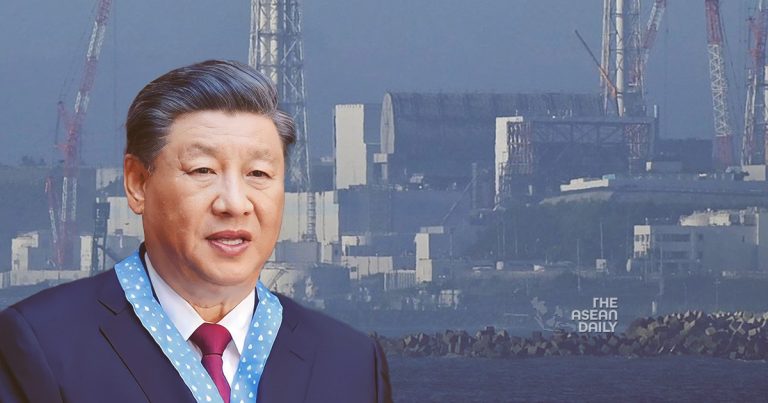24-8-2023 (BEIJING) China has announced the suspension of all seafood imports from Japan as Japan commences the release of treated water from the Fukushima Daiichi nuclear power plant into the Pacific Ocean. China’s customs authority stated that the suspension includes aquatic products and seafood and is intended to “protect the health of Chinese consumers.” China’s foreign ministry has strongly condemned Japan’s decision, labeling it “selfish and irresponsible.”
The Chinese Ministry of Foreign Affairs issued an online statement, expressing severe concerns about Japan’s actions. It accused Japan of transferring risks to the world, endangering future generations, and becoming an ecological and environmental threat and global marine polluter. The statement argued that Japan’s actions violate people’s rights to health, development, and environmental rights. Additionally, it accused Japan of failing in its moral responsibilities and international legal obligations.
The treated water, used to cool radioactive debris inside the Fukushima Daiichi facility following the March 2011 earthquake and tsunami, has been stored in over 1,000 tanks at the site, and these tanks are nearly full. The gradual release of this water into the Pacific Ocean is planned to occur over a span of 30 years.
China has been openly critical of Tokyo Electric Power Co.’s (TEPCO) decision to release the water, expressing concerns about its potential impact on public health. China had previously questioned the safety of the release method and demanded more comprehensive scientific explanations from Japan.
Japan’s government has pledged to monitor the level of radioactivity in nearby waters and fish, with plans to make this data available on official websites. The International Atomic Energy Agency (IAEA) stated in July that the water release plan would have “negligible” radiation effects on humans and the environment.
China’s decision to suspend seafood imports from Japan builds on an existing ban on seafood imports from ten Japanese prefectures. Seafood imports from other prefectures were subject to radioactivity tests.
In response to Japan’s water release, Hong Kong authorities implemented an indefinite ban on seafood imports from ten areas of Japan, including Tokyo, Ibaraki, Gunma, Miyagi, Fukushima, Chiba, Tochigi, Niigata, Nagano, and Saitama.
Protests erupted in South Korea near the building housing the Japanese Embassy in central Seoul. Sixteen individuals were arrested while attempting to enter the building. Prime Minister Han Duck-soo reaffirmed the South Korean government’s position that the wastewater release aligns with international principles set by the IAEA. South Korea intends to establish its monitoring system for the release and will maintain its ban on imports of seafood products from Fukushima and nearby prefectures.
South Korea’s current administration has prioritized improved relations with Japan in its foreign policy agenda and has sought to reassure the public that the released wastewater poses no threat to local ecosystems. The government has conducted daily briefings on the issue and published informational content on official social media channels.
Prime Minister Han emphasized that “our people do not need to worry excessively,” echoing the consensus of experts worldwide on the matter.




